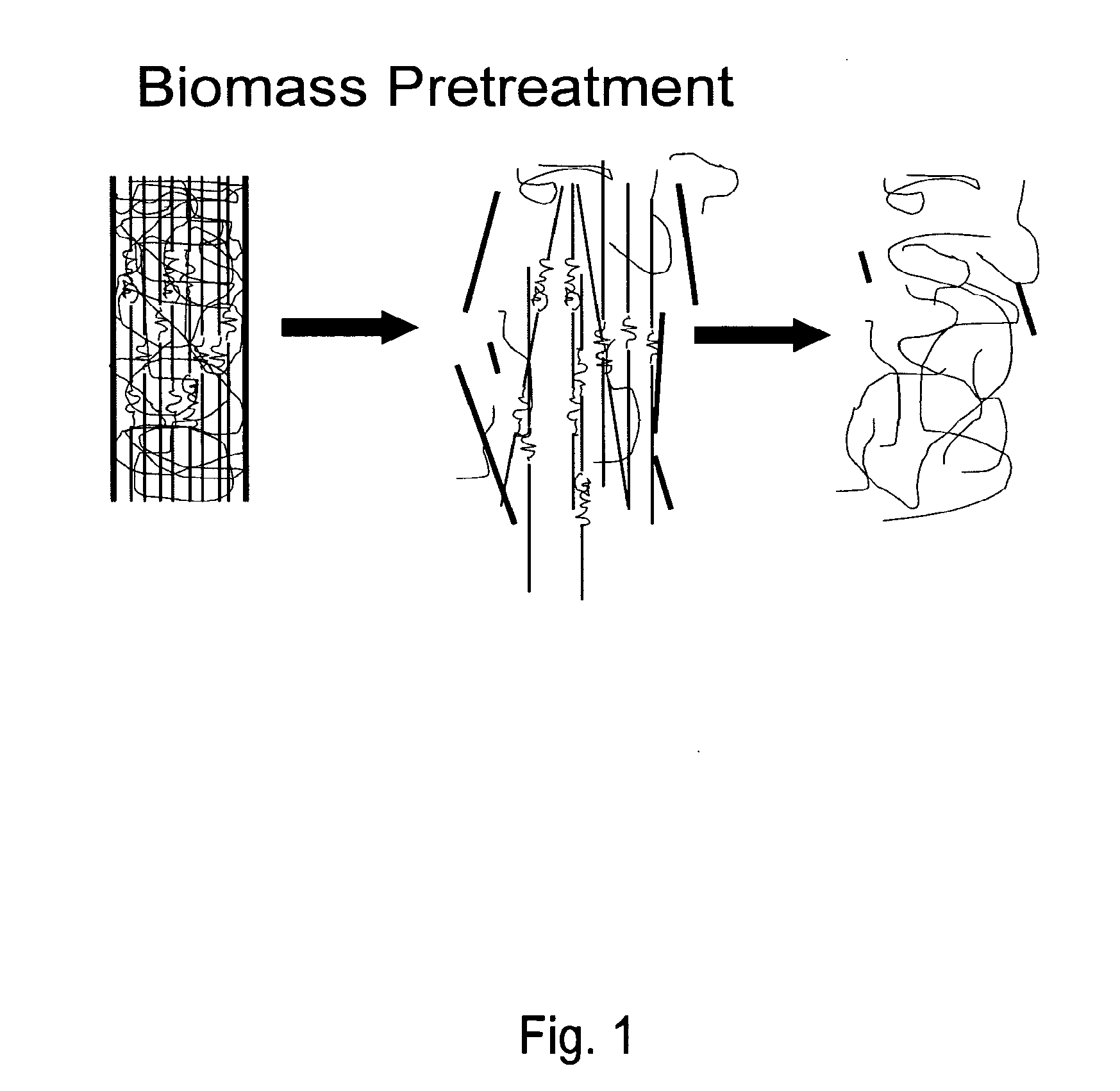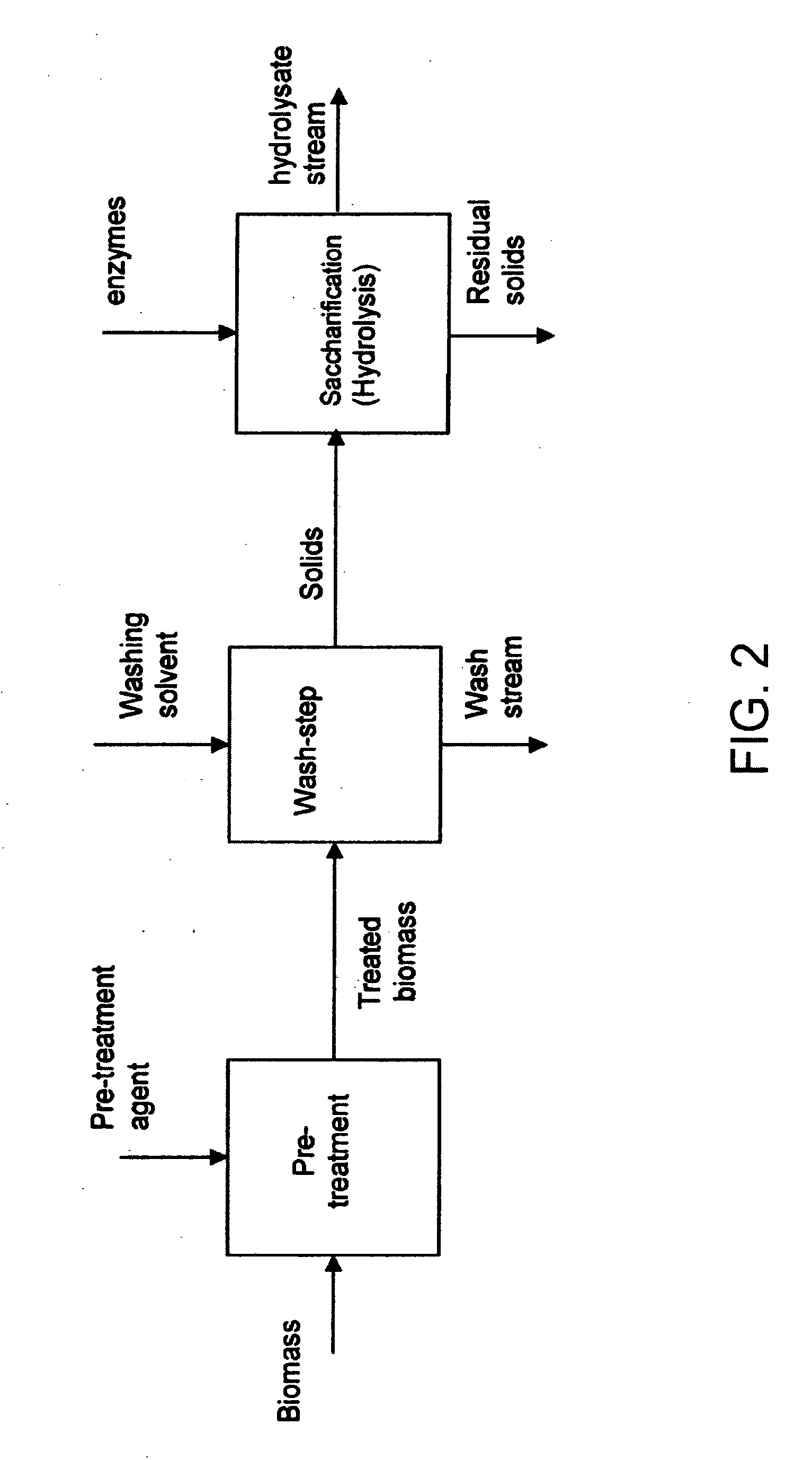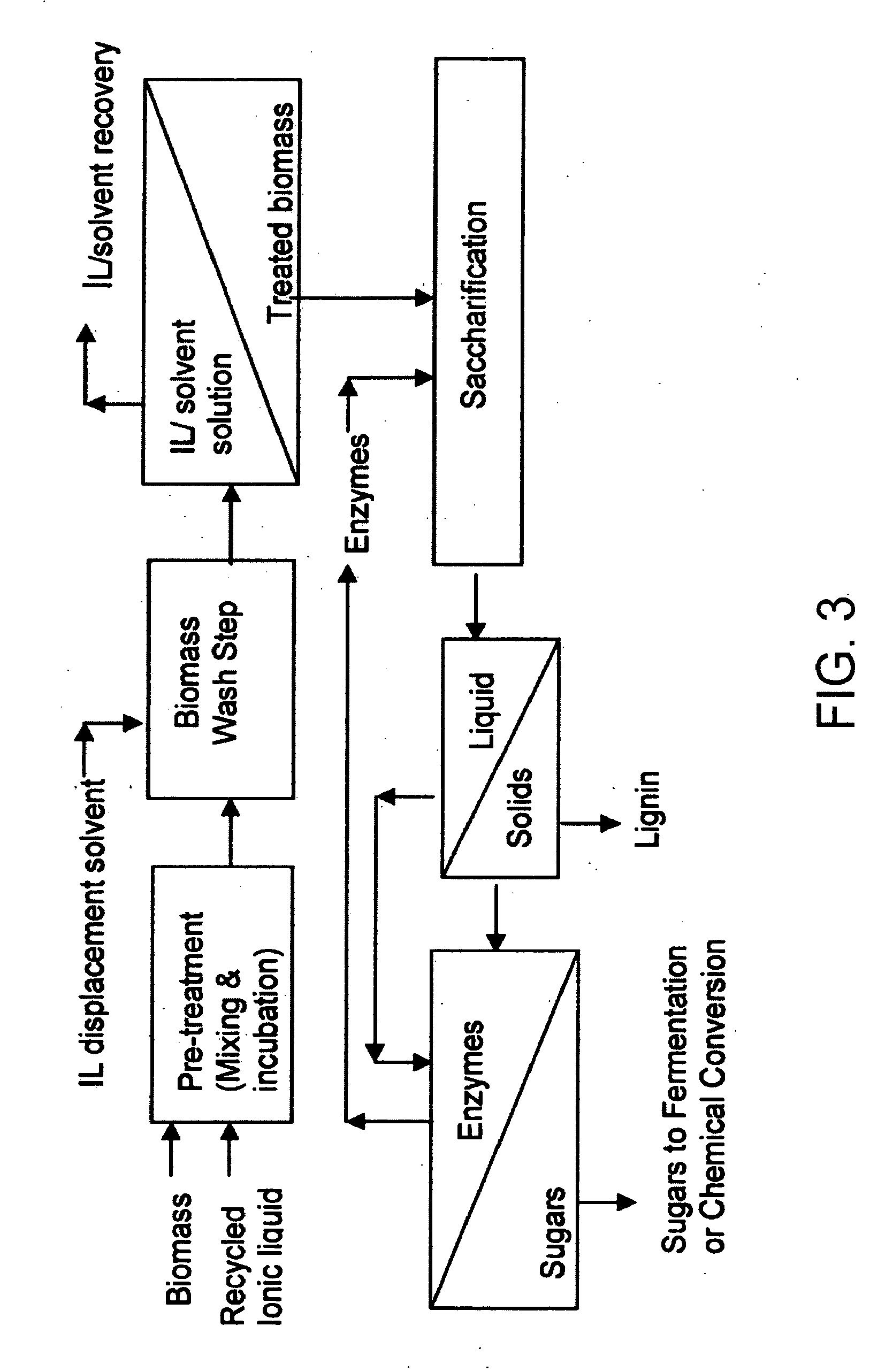Biomass pretreatment
a biomass and pretreatment technology, applied in the field of lignocellulosic biomass conversion to sugar, can solve the problems of slow reaction rate of cellulose hydrolysis (using the enzyme cellulase), low sugar yield, and current pretreatment approaches suffer, so as to improve yield and sugar production rate, improve efficiency, and low enzyme loading
- Summary
- Abstract
- Description
- Claims
- Application Information
AI Technical Summary
Benefits of technology
Problems solved by technology
Method used
Image
Examples
example i
Corn Stover Pretreated with BMIMCl for Varying Temperature / Times
[0041]The incubation time and temperature were systematically varied to achieve optimal glucan and xylan conversions to their monomeric sugars. Corn stover was incubated for 10 minutes, 1 or 3 hours and at 130 or 150° C. in BMIMCl.
[0042]Pretreatment: Corn stover was mixed with IL to form a 5 weight percent biomass in the mixture (5% w / w). The mixture was incubated with mixing at 130 or 150° C. for 10 minutes, 1 hour and 3 hours. The ionic liquid was extracted from the biomass by addition of water, centrifuged and the supernatant was removed. The solid residue was washed until IL was completely extracted.
[0043]Enzymatic hydrolysis: The washed solid was added to a reaction buffer (0.05 M Na citrate buffer, pH 4.8) to form a one percent by weight mixture of biomass solids in the buffer. A commercial cellulase, Spezyme CP, was used at a concentration of 20 FPU / g corn stover (60 FPU / g glucab) where FPU represents filter pape...
example ii
Corn Stover and Poplar with EMIM Acetate
[0046]1-Ethyl-3-Methylimidazolium acetate (EMIM Acetate), in addition to having a high capacity to disrupt the hydrogen bonding structure of crystalline cellulose, is a liquid at room temperature and has a lower melting point than BMIMCl. These traits make it a more convenient representative IL from a process standpoint compared to BMIMCl. This example describes the pretreatment experiments with EMIM acetate.
[0047]Corn stover and poplar, were ground and separated to the same sieve cut, The samples were mixed with EMIMAc to form a biomass / IL mixture of 5 weight % biomass and incubated with mixing at varying temperatures and times, followed by washing with water.
[0048]Enzyme hydrolysis: The procedure for the enzyme hydrolysis is the same as that outlined in Example I (1 weight % biomass in saccharification buffer) except for changes in enzyme loading noted below. The percent conversion to glucose and xylose reported was based on the quantity of ...
example iii
Poplar and EMIM Acetate at High Biomass Ratios
[0050]Poplar was ground and separated to the same sieve cut, incubated in EMIM Acetate, then washed with water. The samples were mixed with IL to form a biomass / IL mixture of varying weight % biomass and incubated without mixing at 120° C. for 1 hour. As seen in FIG. 4, at high weight fractions of biomass to IL there is significant swelling of biomass following uptake of IL.
[0051]Enzyme hydrolysis: The procedure for the enzyme hydrolysis is the same as that outlined in Example II.
[0052]Results: As seen in Table 6, glucan (cellulose) conversion to glucose is high at all biomass fractions used in pretreatment after 24 hours of enzymatic saccharification.
TABLE 6Conversion of glucan and xylan to glucose and xylose,respectively, is given for poplar incubated in EMIMAc at varying biomass weight percent. The weight fraction of biomass in the IL-biomass mixture was varied. For 33% weight biomass, glucanconversion to glucose at 48 hour was 89%.Fo...
PUM
 Login to View More
Login to View More Abstract
Description
Claims
Application Information
 Login to View More
Login to View More - R&D
- Intellectual Property
- Life Sciences
- Materials
- Tech Scout
- Unparalleled Data Quality
- Higher Quality Content
- 60% Fewer Hallucinations
Browse by: Latest US Patents, China's latest patents, Technical Efficacy Thesaurus, Application Domain, Technology Topic, Popular Technical Reports.
© 2025 PatSnap. All rights reserved.Legal|Privacy policy|Modern Slavery Act Transparency Statement|Sitemap|About US| Contact US: help@patsnap.com



